Avoid surveys displayed through happy.luckyparkclub.com
AdwareAlso Known As: happy.luckyparkclub.com pop-up
Get free scan and check if your device is infected.
Remove it nowTo use full-featured product, you have to purchase a license for Combo Cleaner. Seven days free trial available. Combo Cleaner is owned and operated by RCS LT, the parent company of PCRisk.com.
What is happy.luckyparkclub[.]com?
happy.luckyparkclub[.]com is a deceptive website that, if opened, invites visitors to participate in lotteries and to win prizes. To gain a chance to win a prize, a survey must first be completed.
Typically, people do not visit websites such as happy.luckyparkclub[.]com intentionally - they are redirected to them through clicked untrustworthy ads or potentially unwanted applications (PUAs) installed on browsers and/or computers. Generally, people download and install these apps unintentionally.
When installed, PUAs feed users with ads, cause redirects to dubious web pages such as happy.luckyparkclub[.]com, and gather information. We advise against completing any surveys promoted through happy.luckyparkclub[.]com or other similar websites, since they might be used to obtain private details, which could be misused to generate revenue.
![happy.luckyparkclub[.]com scam](/images/stories/screenshots201908/happylucky-homepage.jpg)
happy.luckyparkclub[.]com invites visitors to participate in different lotteries. All request users to complete surveys and answer questions. Once a survey is complete, people supposedly gain the chance to win prizes such as a $1000 Visa or Walmart gift card, Netflix membership, Apple iPhone XS, and Samsung Galaxy S10.
Note that Walmart, Visa, and Netflix have nothing to do with lotteries or surveys presented by happy.luckyparkclub[.]com. The site is simply used to record visitor details by tricking them into answering questions. They might be asked to provide information such as email address, name, surname, telephone number, etc.
Furthermore, surveys opened through happy.luckyparkclub[.]com could be used to trick people into providing private, sensitive information. In this article, we provide three examples of lotteries/surveys, however, happy.luckyparkclub[.]com leads to more than just three. In any case, none of these surveys can be trusted.
Apps that open web pages such as happy.luckyparkclub[.]com are usually designed to serve people with other unwanted content such as pop-up ads, banners, coupons, etc. People who click these ads are often redirected to other untrustworthy websites, and the ads sometimes run scripts that download or install unwanted software.
Furthermore, installed PUAs are used to record data including, for example, users' IP addresses, geolocations, addresses of visited websites, geolocations, and so on. Developers share the details with third parties (who might be cyber criminals) and misuse them to generate revenue. As well as browsing-related information, some PUAs collect personal, sensitive details.
| Name | happy.luckyparkclub.com pop-up |
| Threat Type | Phishing, Scam, Social Engineering, Fraud. |
| Fake Claim | happy.luckyparkclub[.]com opens lottery pages claiming that visitors can win various prizes. |
| Serving IP Address | 35.237.37.230 |
| Symptoms | Fake error messages, fake system warnings, pop-up errors, hoax computer scan. |
| Distribution methods | Compromised websites, rogue online pop-up ads, potentially unwanted applications. |
| Damage | Loss of sensitive private information, monetary loss, identity theft, possible malware infections. |
| Malware Removal (Windows) |
To eliminate possible malware infections, scan your computer with legitimate antivirus software. Our security researchers recommend using Combo Cleaner. Download Combo CleanerTo use full-featured product, you have to purchase a license for Combo Cleaner. 7 days free trial available. Combo Cleaner is owned and operated by RCS LT, the parent company of PCRisk.com. |
happy.luckyparkclub[.]com is virtually identical to happy.goodluckspace[.]com. These are not the only deceptive websites used to trick people into completing surveys and providing information. The people behind them use the details to generate revenue, and visitors never win any prizes.
We advise against providing any information on sites such as happy.luckyparkclub[.]com. Uninstall all PUAs on your browser or computer immediately.
How did potentially unwanted applications install on my computer?
PUAs can be downloaded from their websites, however, most are installed through intrusive ads capable of executing scripts or when software developers include them into the set-ups of other programs using a deceptive marketing method called "bundling".
They use this method trick people into downloading and/or installing PUAs together with other software. They achieve this by hiding information about the inclusion PUAs in "Custom", "Advanced" and other similar sections of the download or installation set-ups. Note, however, that unwanted downloads/installations happen only when people leave the settings unchanged.
How to avoid installation of potentially unwanted applications
Download software from official and trustworthy websites. Do not use third party downloaders, installers, unofficial web pages, Peer-to-Peer networks (torrent clients, eMule), or other channels of this type to download or install software. Do not complete any download/installation process without checking settings (such as "Custom", "Advanced") available in the software setup.
Dismiss any offers to download or install additional, unwanted software before completing the installation/download process. Do not click ads displayed on web pages relating to adult dating, gambling, pornography, etc. Typically, they cause redirects to untrustworthy websites or download/installation of unwanted programs.
To stop the browser from displaying ads and/or causing redirects to dubious web pages, remove unwanted, suspicious or unknown extensions, plug-ins, and add-ons. Also remove programs of this kind installed on the operating system.
If your computer is already infected with PUAs, we recommend running a scan with Combo Cleaner Antivirus for Windows to automatically eliminate them.
Text presented in the initial happy.luckyparkclub[.]com pop-up window:
Congratulations!
Today (Wednesday,October 30) you have the exclusive chance to get a $1,000 Visa Gift Card.You have 3 tries to choose the correct gift box.
Good Luck!
OK
Screenshot of the happy.luckyparkclub[.]com website background:
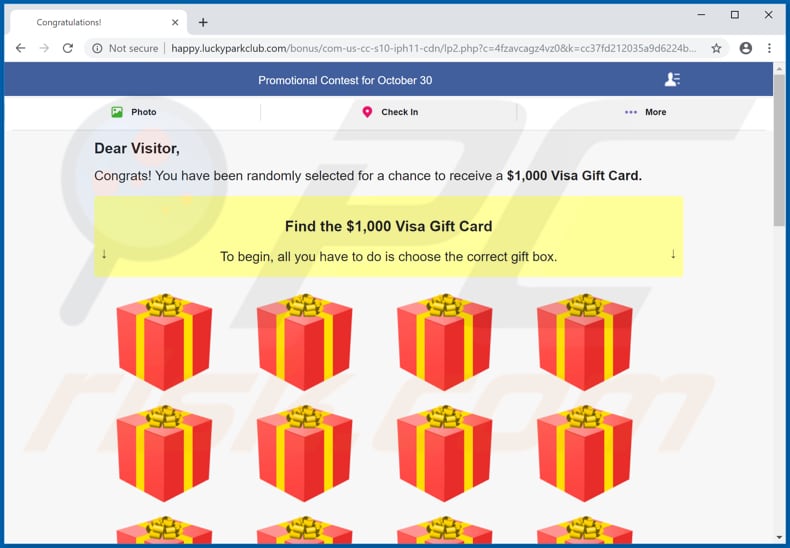
Text presented within this page:
Promotional Contest for October 30
Photo Check In More
Dear Visitor,
Congrats! You have been randomly selected for a chance to receive a $1,000 Visa Gift Card.Find the $1,000 Visa Gift Card
To begin, all you have to do is choose the correct gift box.
Pop-up displayed after completing the happy.luckyparkclub[.]com survey:
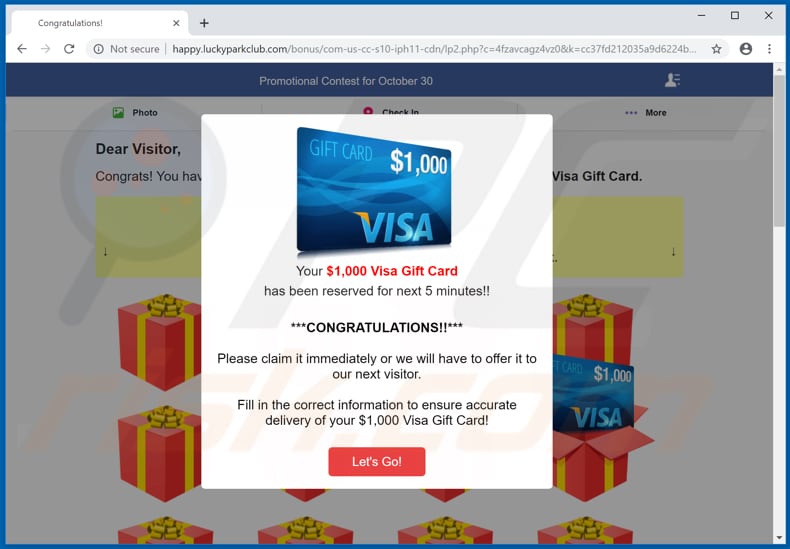
Text presented within this pop-up:
Your $1,000 Visa Gift Card
has been reserved for next 5 minutes!!***CONGRATULATIONS!!***
Please claim it immediately or we will have to offer it to our next visitor.Fill in the correct information to ensure accurate delivery of your $1,000 Visa Gift Card!
Another variant of happy.luckyparkclub[.]com pop-up scam:
Third variant of happy.luckyparkclub[.]com pop-up scam:
Instant automatic malware removal:
Manual threat removal might be a lengthy and complicated process that requires advanced IT skills. Combo Cleaner is a professional automatic malware removal tool that is recommended to get rid of malware. Download it by clicking the button below:
DOWNLOAD Combo CleanerBy downloading any software listed on this website you agree to our Privacy Policy and Terms of Use. To use full-featured product, you have to purchase a license for Combo Cleaner. 7 days free trial available. Combo Cleaner is owned and operated by RCS LT, the parent company of PCRisk.com.
Quick menu:
- What is happy.luckyparkclub.com pop-up?
- How to identify a pop-up scam?
- How do pop-up scams work?
- How to remove fake pop-ups?
- How to prevent fake pop-ups?
- What to do if you fell for a pop-up scam?
How to identify a pop-up scam?
Pop-up windows with various fake messages are a common type of lures cybercriminals use. They collect sensitive personal data, trick Internet users into calling fake tech support numbers, subscribe to useless online services, invest in shady cryptocurrency schemes, etc.
While in the majority of cases these pop-ups don't infect users' devices with malware, they can cause direct monetary loss or could result in identity theft.
Cybercriminals strive to create their rogue pop-up windows to look trustworthy, however, scams typically have the following characteristics:
- Spelling mistakes and non-professional images - Closely inspect the information displayed in a pop-up. Spelling mistakes and unprofessional images could be a sign of a scam.
- Sense of urgency - Countdown timer with a couple of minutes on it, asking you to enter your personal information or subscribe to some online service.
- Statements that you won something - If you haven't participated in a lottery, online competition, etc., and you see a pop-up window stating that you won.
- Computer or mobile device scan - A pop-up window that scans your device and informs of detected issues - is undoubtedly a scam; webpages cannot perform such actions.
- Exclusivity - Pop-up windows stating that only you are given secret access to a financial scheme that can quickly make you rich.
Example of a pop-up scam:

How do pop-up scams work?
Cybercriminals and deceptive marketers usually use various advertising networks, search engine poisoning techniques, and shady websites to generate traffic to their pop-ups. Users land on their online lures after clicking on fake download buttons, using a torrent website, or simply clicking on an Internet search engine result.
Based on users' location and device information, they are presented with a scam pop-up. Lures presented in such pop-ups range from get-rich-quick schemes to fake virus scans.
How to remove fake pop-ups?
In most cases, pop-up scams do not infect users' devices with malware. If you encountered a scam pop-up, simply closing it should be enough. In some cases scam, pop-ups may be hard to close; in such cases - close your Internet browser and restart it.
In extremely rare cases, you might need to reset your Internet browser. For this, use our instructions explaining how to reset Internet browser settings.
How to prevent fake pop-ups?
To prevent seeing pop-up scams, you should visit only reputable websites. Torrent, Crack, free online movie streaming, YouTube video download, and other websites of similar reputation commonly redirect Internet users to pop-up scams.
To minimize the risk of encountering pop-up scams, you should keep your Internet browsers up-to-date and use reputable anti-malware application. For this purpose, we recommend Combo Cleaner Antivirus for Windows.
What to do if you fell for a pop-up scam?
This depends on the type of scam that you fell for. Most commonly, pop-up scams try to trick users into sending money, giving away personal information, or giving access to one's device.
- If you sent money to scammers: You should contact your financial institution and explain that you were scammed. If informed promptly, there's a chance to get your money back.
- If you gave away your personal information: You should change your passwords and enable two-factor authentication in all online services that you use. Visit Federal Trade Commission to report identity theft and get personalized recovery steps.
- If you let scammers connect to your device: You should scan your computer with reputable anti-malware (we recommend Combo Cleaner Antivirus for Windows) - cyber criminals could have planted trojans, keyloggers, and other malware, don't use your computer until removing possible threats.
- Help other Internet users: report Internet scams to Federal Trade Commission.
Share:

Tomas Meskauskas
Expert security researcher, professional malware analyst
I am passionate about computer security and technology. I have an experience of over 10 years working in various companies related to computer technical issue solving and Internet security. I have been working as an author and editor for pcrisk.com since 2010. Follow me on Twitter and LinkedIn to stay informed about the latest online security threats.
PCrisk security portal is brought by a company RCS LT.
Joined forces of security researchers help educate computer users about the latest online security threats. More information about the company RCS LT.
Our malware removal guides are free. However, if you want to support us you can send us a donation.
DonatePCrisk security portal is brought by a company RCS LT.
Joined forces of security researchers help educate computer users about the latest online security threats. More information about the company RCS LT.
Our malware removal guides are free. However, if you want to support us you can send us a donation.
Donate
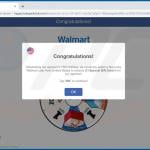
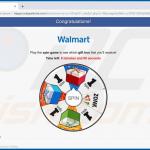
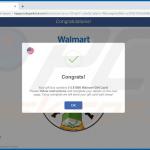
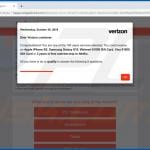
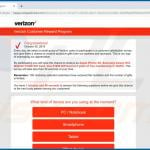
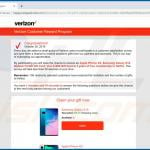

▼ Show Discussion